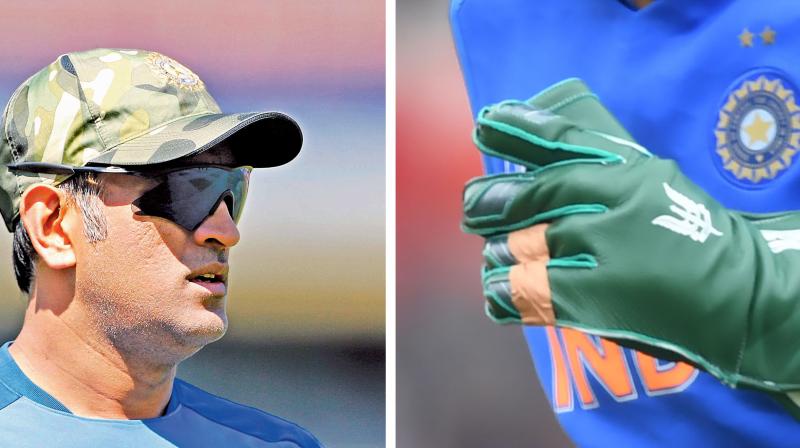Dhoni should remove his symbolic insignia

The Indian Army para forces’ “Balidaan” insignia that Mahendra Singh Dhoni wore on his wicketkeeping gloves in Team India’s opening game against South Africa in the World Cup has become an international bone of contention. The ICC has asked that the player remove the insignia as it reflects a message that is not allowed on the field of play. It would be in the interest of the sporting nature of cricket contests that no overt or covert message not belonging to the field of play be removed. Politics and sport have often proved inseparable, but what this particular issue does is to whip up mass hysteria over nationalism and jingoism that has little space in sport, except maybe in the fans’ galleries. With Pakistan objecting to what it calls “war-mongering” over a little symbolism indulged in by Dhoni, an honorary lieutenant-colonel in the Territorial Army’s Parachute Regiment, cricket administrators are left tending to a distracting issue in the middle of the World Cup action.
The rules are clear in expressly forbidding display of messages which relate to political, religious or racial activities or causes. No matter what may have been overlooked in the past regarding the same symbols for causes, including humanitarian ones, it’s only a fair expectation that politics be kept out of sport. It is possible to go back in the history of sport and mention the “black fist” salute at the 1968 Mexico Olympics by American athletes that became an international cause celebre. The point is — do we need sport to be used as a medium for any other cause, besides athletes representing their nations and being celebrated just for that, and appreciation of their sporting talent and prowess? Given the sensitive aftermath of the Pulwama terror attack and the Balakot counterstrike by the IAF, it is best that the matter of an insignia symbolising “sacrifice” be left out, irrespective of what the jingoists may say on either side of the border.
The Cricket World Cup in 2003 in South Africa was used by Andy Flower and Henry Olonga to “mourn the death of democracy in our beloved Zimbabwe” via black armbands and black wristbands. Both players were subsequently to flee their homeland. There was symbolism in Team India wearing Army caps in the home ODI series against Australia after Pulwama. The national mood then was searingly anti-Pakistan and the symbolism found acceptance. But to stretch things into a multilateral event like the World Cup, which is cricket’s showpiece event, is a “play” too far. Dhoni may find himself in a cleft stick after his gesture as any course he adopts now could be misconstrued. Any political, national or racial symbolism is best left outside the arena. They are not for players, who would otherwise become unwitting pawns in the bigger games being played outside the insulated world of pure sport.

